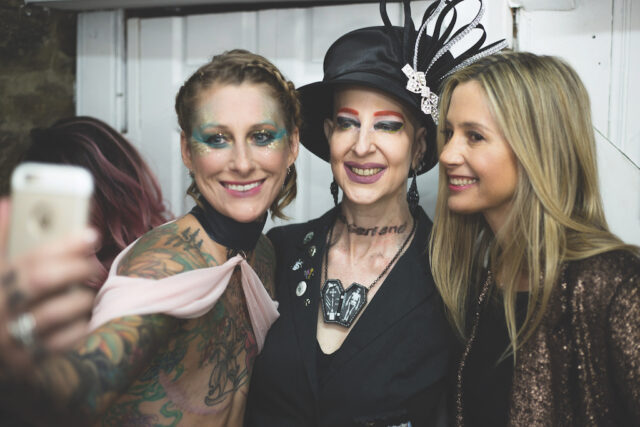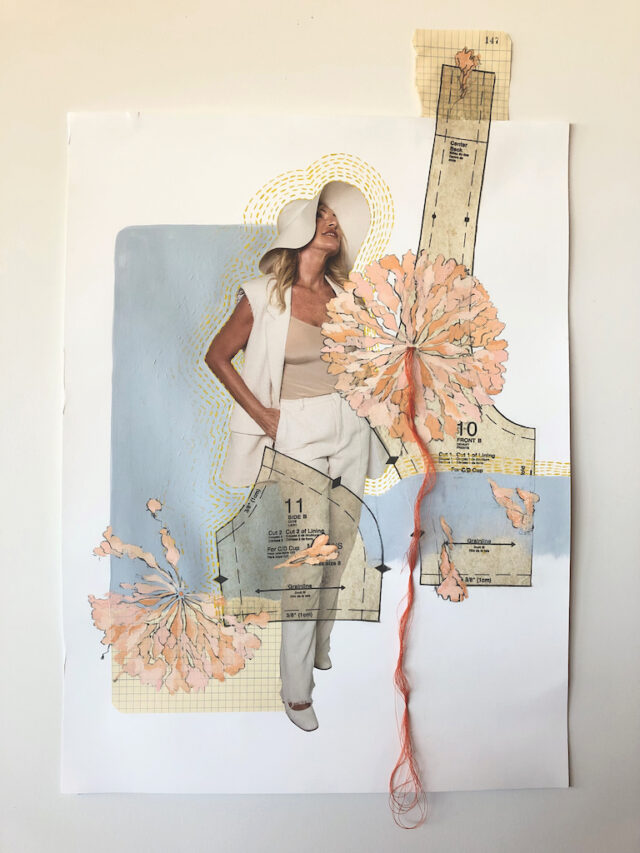
By Nancy Kane
In 2014, artist and yogi Beth Fairchild went for her regular mammogram, which came up clear. One week later, with no palpable lump in her breast, she learned she had Stage 4 metastatic breast cancer. She was 34. Her only symptoms were an upset stomach and fatigue.
Metastatic breast cancer, or Stage 4 breast cancer, is the most advanced; it means the cancer has spread beyond the breast to other parts of the body, most commonly the bones, lungs, liver or brain.
Fairchild wasn’t surprised to learn that metastatic breast cancer research is underfunded, and the metastatic population underserved. And while she passes no judgment on the Pink Ribbon efforts of many breast cancer foundations, she found them to be the domain of middle-aged white women. She felt something else was needed. Something that spoke to every woman regardless of race, socioeconomic status or sexual orientation.

“We’re the island of misfit toys,” she says of Cancer Culture, a nonprofit dedicated to changing the way people think about breast cancer. “Cancer doesn’t discriminate. We are a place for all women, and some men, to land and feel safe.”
Cancer Culture evolved from another nonprofit, #Cancerland, which was founded by NY personality Champagne Joy—a colorful character on the New York scene and a tireless advocate for the more than 100 women and men who die every day from metastatic breast cancer—a disease that she herself would die from in 2017. #Cancerland began as a place where cancer patients could find rides to treatments and get help with chores, an online community where those suffering from metastatic breast cancer could find each other and talk. After Champagne Joy’s passing, Fairchild and co-founder Rachel Burns, a singer/songwriter and activist, wanted to continue Joy’s legacy and rebranded #Cancerland in 2021 as Cancer Culture, a nationally known advocacy group and fundraising organization for people with advanced breast cancer.
Fairchild spoke of the latest retreat at her house where seven women with metastatic breast cancer gathered to connect about life and death. “There is no pity; it’s all understanding. Women are talking about death and dying like someone else would talk about ordering lunch,” she says.
Bonding is at the core of Cancer Culture. “Being able to share stories that are so tragic and scary is healing,” Fairchild says. So is truth-telling. “Most organizations talk about survivability, but that only extends to five years,” says Fairchild. After that, the patients are not tracked. “We don’t want to be fear-mongers,” Fairchild continues. “Women do everything right, but the cancer recurs. The truth is, it never left. Breast cancer is sneaky.”
Funding for research of metastatic breast cancer is of paramount importance. Calling themselves the punk rockers of breast cancer, Cancer Culture has been involved in several high-profile and provocative events, including New York Fashion Week and a fashion show in Milan. Seeing themselves as the intersection of art and breast cancer awareness, they are also planning an event for July 12-13 at the Montauk Beach House and the AB Gallery in East Hampton. Photographer Bill Livingston, who shot portraits of many of the cancer patients, recruited artists to paint over the images. That exhibit will be on display at the AB Gallery; many of the patients will be in attendance.
Fairchild, who was given two years to live in 2014. recognizes the racial disparity in women of color and metastatic breast cancer. Black women are nearly 40 percent more likely to die from the disease than white women, for example. “We need to talk about it to effect change,” she says. “And we need people of power and influence to start listening.” cancerculture.org





